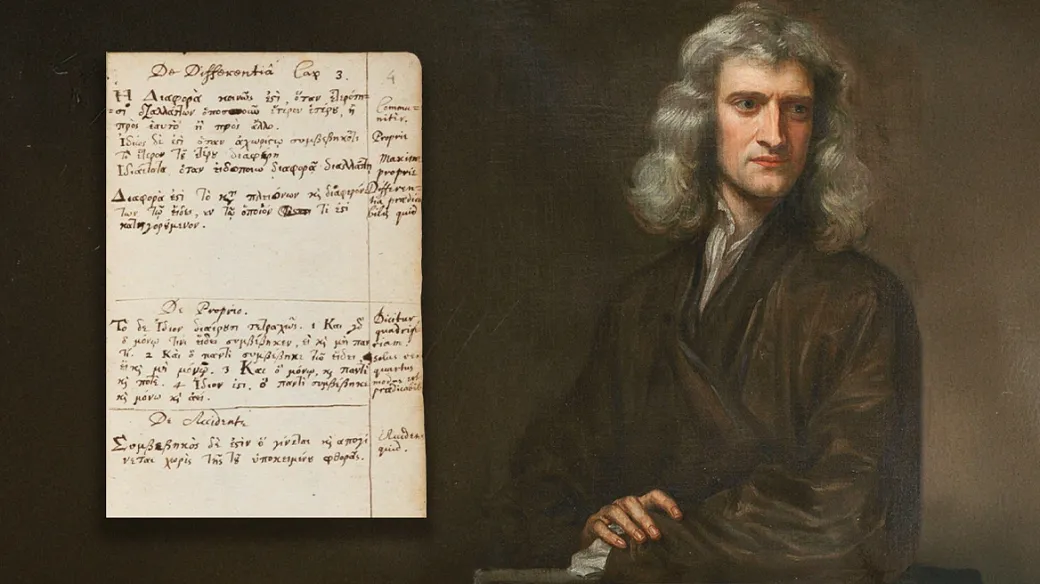by Eugenia Manolidou
I just read the article about Isaac Newton and his unknown notes in Greek. Newton, known for his contributions to science, had the ability to record his observations in the Greek language, a fact that demonstrates the importance of knowledge of classical languages at the time (Proto Thema, 2024). This may impress many in Greece today, but at the time, knowing Greek was not an exception but the norm. During the Enlightenment and Renaissance, knowledge of Ancient Greek and Latin was a fundamental prerequisite for intellectual and scientific advancement. The educated elite of the time studied classical texts in their original language, as translations were rare and considered less reliable. Greek and Latin vocabulary was an integral part of education, allowing direct access to the ideas of ancient philosophers, scientists, and literary figures.
The Greek language is one of the greatest gifts of Greek civilization to humanity. Ancient Greek, along with Latin, was an integral part of European education for centuries. Prominent examples of classical language instruction can be found in the works of Johannes Posselius, a German philologist of the 16th century, who wrote, among many other works, Peri Oikeion Dialogon Biblion Hellenisti kai Romaisti (Posselius, 1580). In this work, classical languages are taught in an experiential and communicative way, approaching learning naturally and interactively.
Another significant milestone in the teaching of classical languages was the New Academy of Aldus Manutius, founded in Venice in the 16th century. Its goal was to spread Greek and Latin through high-quality publications and educational programs aimed at scholars and students across Europe (Lowry, 1979). The Academy significantly contributed to the dissemination of ancient Greek texts and the understanding of the language in an authentic and meaningful way.
It is noteworthy that the Founding Fathers of the United States of America had a deep knowledge of Ancient Greek (Winterer, 2016). They studied classical texts in their original language, as translations were not yet widely available. Just as English is considered essential today, the study of classical languages was vital for education and understanding ancient texts.
At the end of the 19th century, the teaching of classical languages underwent significant changes as some German philologists promoted a more scientific and analytical approach. This shift towards a scientific approach in classical language teaching was linked to the adoption of German educational models, which emphasized grammar, syntax, and philological analysis of texts. This transition involved moving away from the experiential and communicative teaching method, focusing instead on grammar and syntax, sidelining oral use and listening comprehension. This change resulted in a decline in students’ interest in classical studies.
Today, many educational initiatives worldwide are trying to reverse this approach by incorporating experiential methods into the teaching of classical languages (Lloyd & Hunt, 2021). This shift towards a more human-centered and interactive education offers new opportunities for studying the Greek language, tailored to the needs of the modern era. In an age where artificial intelligence and technology dominate, preserving the humanistic dimension in education is more important than ever.
Bibliography:
- Johannes Posselius, Peri Oikeion Dialogon Biblion Hellenisti kai Romaisti, 1580.
- Lowry, M. (1979). The World of Aldus Manutius. Cornell University Press.
- Winterer, C. (2016). The Culture of Classicism: Ancient Greece and Rome in American Intellectual Life, 1780-1910. Johns Hopkins University Press.
- Proto Thema. (2024). Isaac Newton: The Unknown Notes in Greek. Retrieved from: protothema.gr
- Lloyd, M. E., & Hunt, S. (2021). Communicative Approaches for Ancient Languages. Bloomsbury Academic.
